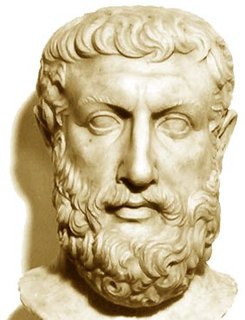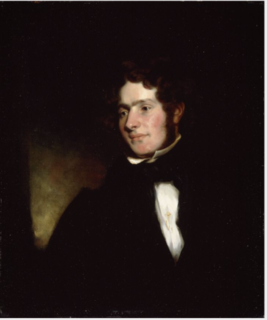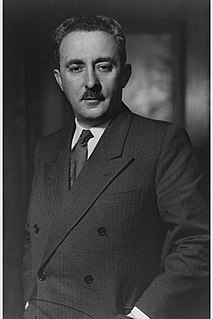A Quote by Parmenides
Gaze steadfastly at things which, though far away, are yet present to the mind.
Related Quotes
This is the way of meditation: encountering the present in all its tremendous beauty, just being in the present. Inside, the mind stops. Outside, the world changes totally. It is no more the ordinary world you have known before. In fact, you have not known it at all. Your mind was distorting everything, your mind was creating fantasies. Your eyes were full of fantasies and you were looking though those fantasies. They never allowed you to see that which is. If the mind is gone, even for a moment, suddenly the whole existence explodes upon you.
These tenses-past, present and future-are not the tenses of time; they are tenses of the mind. That which is no longer before the mind becomes the past. That which is before the mind is the present. And that which is going to be before the mind is the future. Past is that which is no longer before you. Future is that which is not yet before you. And present is that which is before you and is slipping out of your sight. Soon it will be past.
What is wine? It is the grape present in another form; its essence is there, though the fruit which produced it grew thousands of miles away, and perished years ago. So the object of many a tender thought may be spiritually present, in defiance of space - and fond recollections cherished in defiance of time.
It is far more than the discovery of life without a self. The immediate, inevitable result is an emergence into a new dimension of knowing and being that entails a difficult and prolonged readjustment. the reflexive mechanism of the mind -or whatever it is that allows us to be self-conscious - is cut off or permanently suspended so the mind is ever after held in a fixed now moment out of which it cannot move in its uninterrupted gaze upon the Unknown
Instead of 'watching the thinker,' you can also create a gap in the mind stream simply by directing the focus of your attention into the Now. Just become intensely conscious of the present moment. This is a deeply satisfying thing to do. In this way, you draw consciousness away from mind activity and create a gap of no-mind in which you are highly alert and aware but not thinking. This is the essence of meditation.
Commemoration of Gilbert of Sempringham, Founder of the Gilbertine Order, 1189 Some there are who presume so far on their wits that they think themselves capable of measuring the whole nature of things by their intellect, in that they esteem all things true which they see, and false which they see not. Accordingly, in order that man's mind might be freed from this presumption, and seek the truth humbly, it was necessary that certain things far surpassing his intellect should be proposed to man by God.
It must be that when God speaketh, he should communicate, not one thing, but all things; should fill the world with his voice; should scatter forth light, nature, time, souls, from the centre of the present thought; and new date and new create the whole.Whenever a mind is simple and receives a divine wisdom, old things pass away, - means, teachers, texts, temples fall; it lives now, and absorbs past and future into the present hour. All things are made sacred by relation to it,-one as much as another. All things are disolved to ther center by thier cause.
But by far the greatest hindrance and aberration of the human understanding proceeds from the dullness, incompetency, and deceptions of the senses; in that things which strike the sense outweigh things which do not immediately strike it, though they be more important. Hence it is that speculation commonly ceases where sight ceases; insomuch that of things invisible there is little or no observation.





































